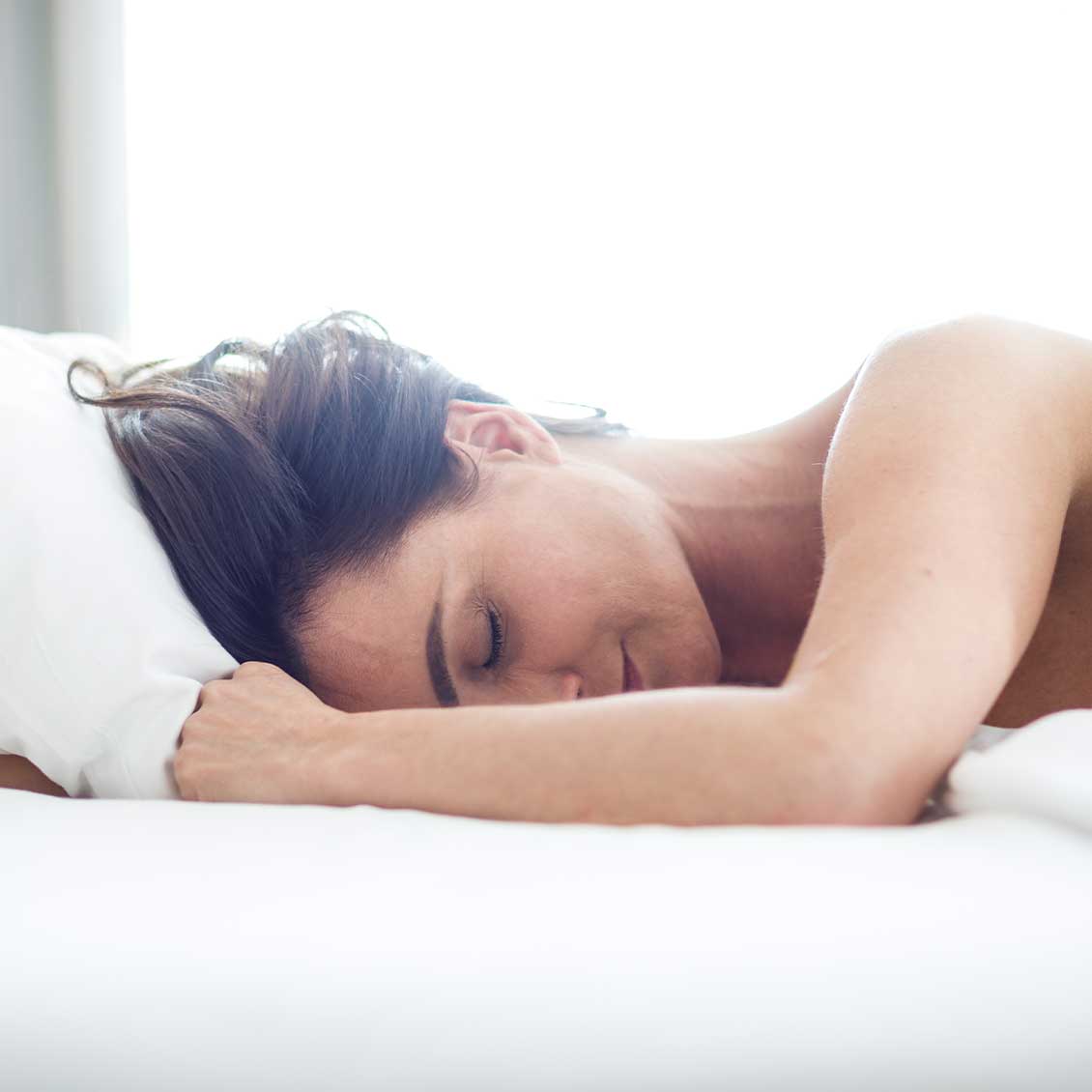An alarming finding in adults, but also in children
The quality of sleep in France continues to deteriorate. The latest studies carried out in France on adults and children are alarming. The sleep deficit of the French population grows every year.
We sleep on average 1.5 hours less per night than 30 years ago and for the first time, daily sleep time has fallen below the symbolic bar of 7 hours, while the comfort zone is between 7 and 9 hours per night, according to individual needs.
This significant deterioration in sleep time and quality is widely felt by the French population, since 45% of adults surveyed believe they do not get enough sleep and 12% believe they are insomniacs.
For the first time, we note an awareness in the French population of the negative consequences for health of lack of sleep. Indeed, more than one in two French people think that the problem with sleep must be taken seriously.
In children, the needs are different, based on the age, so it is essential to distinguish between children under 3 years old and those over 3 years old. From the age of 3, children should sleep an average of 10 hours per night.
Irritability and a lack of concentration are often synonymous with a lack of sleep.
The finding has also been confirmed in children with only 17% of 6-year-olds getting enough sleep.

Why don’t we sleep as well?
One of the main factors for the deterioration in the quality and number of hours of sleep is the predominant role that screens play in our daily lives.
These, in addition to considerably delaying the time it takes to fall asleep, deeply disrupt our biological clock by inhibiting the secretion of melatonin: the sleep hormone.
Children are not all equal when it comes to sleep. Some will have difficulty falling asleep, others will wake up several times a night … These difficulties are often the consequence of a mismatch between their physiological needs and their environment, as well as the stressful pace of our modern lives. The predominance of screens also negatively impacts the sleep of these little ones.
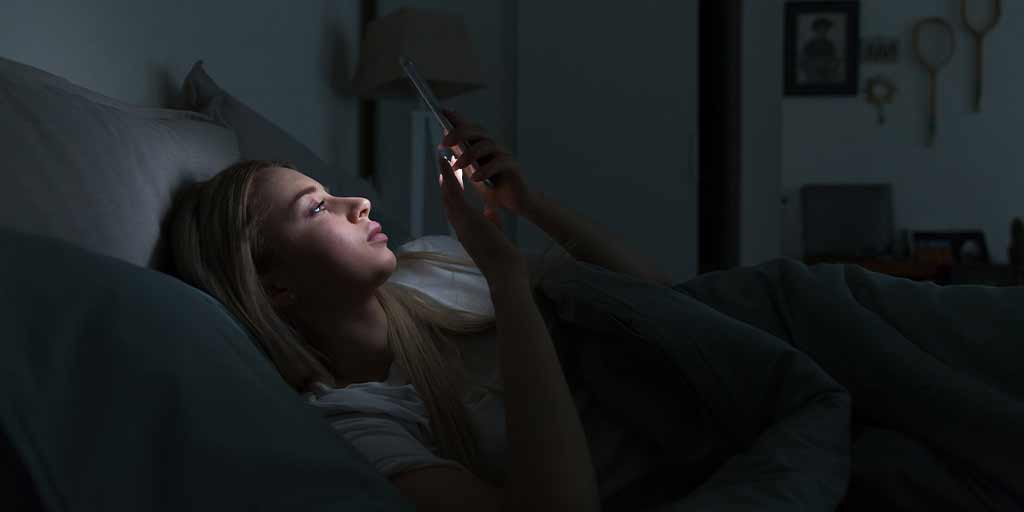
Sleep: a major player in our health
Cognitive function:
The latest studies have confirmed that a lack of sleep impairs memory, attention and stimulation, as well as cognitive functions.
Indeed, during the night, the hippocampus, which is the area dedicated to memory, sorts, records and classifies the information of the day. When sleep is disturbed, it cannot perform its functions properly. Sleep also plays a major role in anxiety disorders, as well as depression.
Immune system:
At night, our body records all the events of the day and activates immune cells, including T lymphocytes. The body takes advantage of this rest period to create antibodies, thereby strengthening our immunity. A study published by INSERM concluded that “Sleeping less than 6 hours per night quadruples the risk of getting sick after exposure to viruses”. In addition, during the night, the body repairs itself physically, but also psychologically from all the stress that has occurred during the day.
Cardiovascular balance:
During the night, the decrease in nervous activity causes a drop in heart rate. When the body rests, it lowers the risk of stroke, heart attack and high blood pressure.
Metabolic balance and weight loss:
At night, the metabolism is regulated via the production of hormones, such as insulin, leptin and ghrelin. When sleep is disturbed, metabolic balance is equally disturbed, which can lead to weight gain over the long term or a more serious risk of type 2 diabetes. People who sleep less than 6 hours a night have 2.5 times the risk of developing type 2 diabetes or being obese.
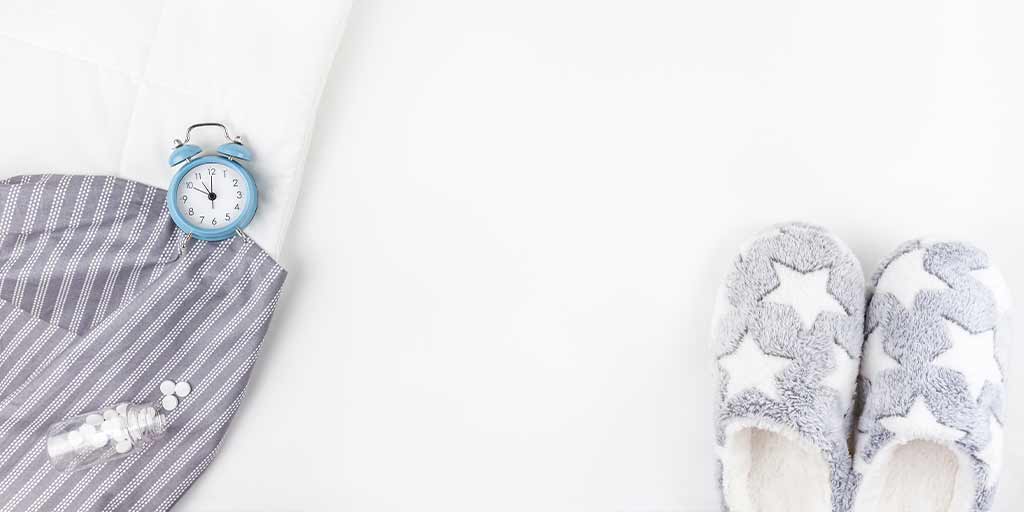
The Sandman is wait for me, I’m coming!
France holds the sad record as the largest consumer of sleeping pills.
One in eight people in France say that they he/she has taken a sleeping drug at least once. While these treatments are effective at first, habituation quickly reduces their benefits. Furthermore, the numerous side effects mean that this solution should be minimised as much as possible.
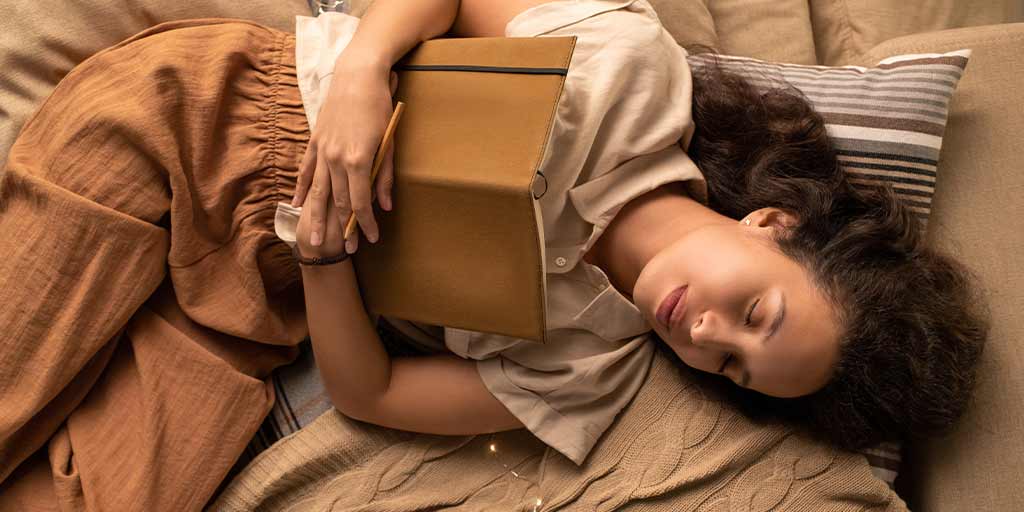
Solutions for adults
Nowadays, many safe and effective alternatives exist to help us improve the quality of our sleep.
We have assessed a variety of proven supplements:
- Melatonin: this sleep hormone is ideal for drastically reducing sleep disturbances. Indeed, melatonin is a powerful active ingredient known for its ability to reduce the time it takes to fall asleep. It is advisable that you consume 1 mg preferably before bedtime.
- Tryptophan: a precursor of serotonin and melatonin, this is an essential amino acid that has been used for many years to help you fall asleep.
- Since sleep is closely linked to our anxiety, magnesium and vitamin B6 are often recommended in combination in order to better regulate psychological functions and ensure optimal relaxation.
Nature is also full of active ingredients widely used in herbal medicine to improve sleep quality.
- Lemon Balm for example, has calming and sedative properties. Taken before bedtime, it promotes sleep and relaxation. For guaranteed effectiveness, we recommend Cyracos® lemon balm. It is a patented extract, titrated in hydroxycinnamic and rosmarinic acids, whose effectiveness on the quality of sleep, the reduction of nocturnal awakenings, as well as the time it takes to fall asleep has been clinically proven from 15 days of use* .
- Passionflower and Eschscholtzia, in addition to their beneficial effects on sleep quality, also contribute to maximum recovery, so you will be in top form during the day.
- Poppy also has sedative and soothing properties that naturally help you fall asleep.
Essential oils are also an effective solution to fall into the arms of the Sandman
Soothing, relaxing or even a sedative, they facilitate relaxation and falling asleep for restful sleep. The effectiveness of essential oils largely depends on their quality. 100% pure and natural and chemotyped essential oils are always best.
- Chamomile Essential Oil , rich in apigenin, has soothing properties. It is ideal before bed to promote quality sleep in total serenity.
- Lavender Essential Oil also promotes relaxation and sleep. It is common to apply 2 drops on the pillow.
- The Essential oils of Petit Grain Bigarade and Marjoram , by exerting a beneficial action on the nervous system, play a central role in the process of falling asleep.
While the effectiveness of essential oils is proven, they do however, require a certain degree of knowledge. Indeed, the concentration of active ingredients is so high that they must be handled with care. For the uninitiated, it is preferable to use ready-made complexes for optimum efficacy and safety.
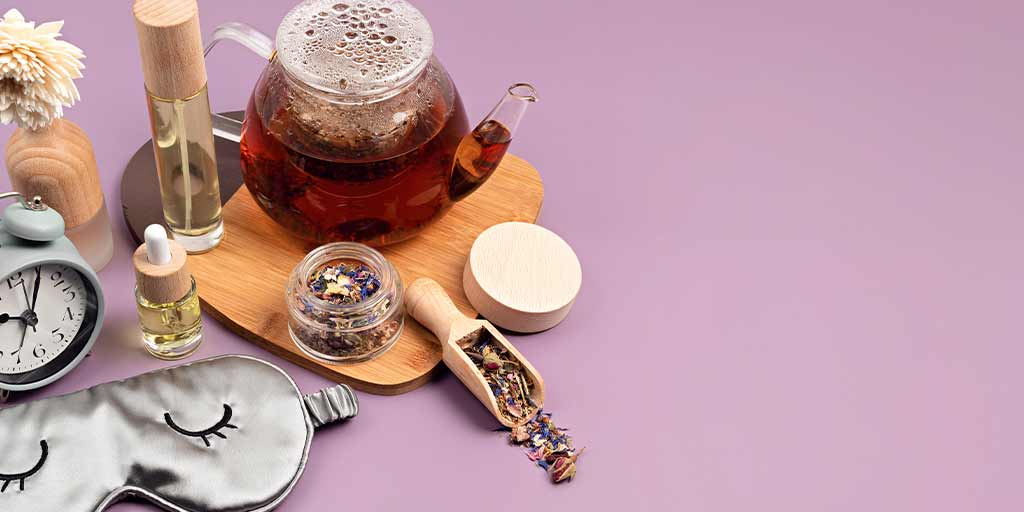
Solutions for the little ones
For children, it is best to opt for 100% natural solutions without side effects, such as Homeopathy or Herbal Medicine.
- Orange blossom, Marjoram or Lavender, are ideal plants to make it easier for children to fall asleep from an early age. In fact, their calming and soothing properties will promote the relaxation of your little ones, essential to reducing the time it takes to fall asleep, as well as quality sleep.
Natural solutions for children are often offered for convenience and taste in syrup form. Be careful of their composition: the aromas must be natural, as well as the sugars. For example, always choose agave nectar over glucose syrup.
Sleep hygiene: a new concept
For the odds to be on your side, it is essential that you take natural solutions while following a few simple rules in order to maximise their effects.
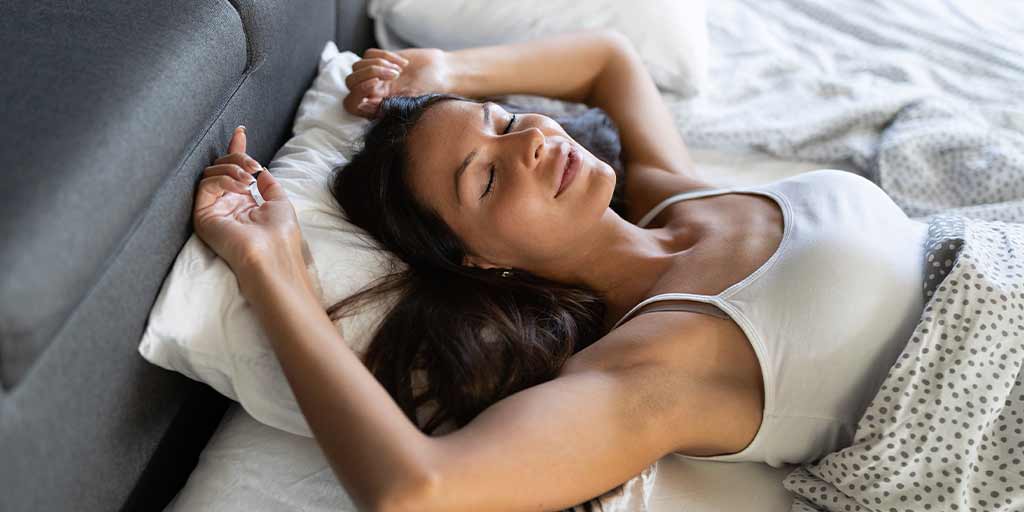
Bibliographies
- Julien Cases, Alvin Ibarra, Nicolas Feuillère, Marc Roller, Samir G. Sukkar. Pilot trial of Melissa officinalis L. leaf extract in the treatment of volunteers suffering from mild-to-moderate anxiety disorders and sleep disturbances. Mediterr J Nutr Metab (2011) 4: 211–218
- OpinionWay Survey conducted on1020 people aged 18 to 65, from 9 to 16 January 2020. National sample representative of the French population: 33% aged 18 to 34, 44% aged 34 to 54 and 23% from 55 to 65 years old. With 36% of Socio-professional category (CSP) +, 37% of CSP-, 27% inactive including 9% students.
- The Public Health France (SPF) Barometer published in the Weekly Epidemiological Bulletin (BEH) on Tuesday, 12 March.

